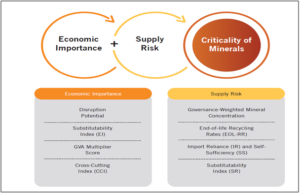Archives
(PRELIMS Focus)
Category: Science and Technology
Context:
- India’s tuberculosis (TB) incidence, fell by 21% — from 237 TB cases per lakh population in 2015 to 187 per lakh population in 2024, according to the World Health Organization (WHO) Global TB Report, 2025.

About Tuberculosis:
- Nature: TB is a bacterial infection (Mycobacterium tuberculosis) affecting the lungs, spreading through the air.
- Risk Factors: These include weak immune system, diabetes, malnutrition, tobacco, and alcohol use. About 25% of the global population is infected, but only 5–10% develop symptoms.
- Symptoms: These are persistent cough for more than 3 weeks, often with blood, weight loss, night sweats, high fever, fatigue, loss of appetite, chest pain, swollen lymph nodes, etc.
- Transmission: TB spreads through the air when an infected person coughs, sneezes, or spits, releasing germs that others can inhale.
- Diagnosis: WHO recommends rapid molecular diagnostic tests as initial tests for people showing signs and symptoms of TB. Other diagnostic tools can include sputum smear microscopy and chest X-rays.
- Prevention: It is preventable and curable with antibiotics. The Bacille Calmette-Guérin (BCG) vaccine is given to infants to prevent TB.
- Treatment: Standard TB treatment lasts 4-6 months. Incomplete treatment leads to drug-resistant TB.
- Types of drug-resistant TB:
- Multidrug-resistant TB (MDR-TB): It is resistant to isoniazid and rifampicin (medicines used to treat TB), treatable with costlier alternatives.
- Extensively Drug-Resistant TB: It is more severe, with limited treatment options.
- Initiatives taken by India:
- National TB Elimination Programme (NTEP): In 2020, the Revised National Tuberculosis Control Program (RNTCP) was renamed the NTEP with the goal to eliminate TB in India by 2025, five years ahead of the global target of 2030.
- Pradhan Mantri TB Mukt Bharat Abhiyaan (PMTBMBA): Launched in 2022 as part of NTEP, it focuses on providing nutritional, diagnostic, and vocational support to improve treatment outcomes and accelerate India’s TB elimination goal. It is the world’s largest crowd-sourcing initiative for TB patient nutrition.
- Ni-Kshay Mitra initiative: This initiative encourages individuals, NGOs, and corporations to support TB patients with nutritional, social, or economic aid for six months. The Ni-Kshay Portal helps health workers manage TB cases, track treatment, and report real-time data for India’s TB surveillance.
Source:
Category: Polity and Governance
Context:
- November 9 is celebrated as the National Legal Services Day to commemorate the Legal Services Authorities Act, 1987 (which led to formation of NALSA).

About National Legal Services Authority (NALSA):
- Formation: The NALSA (National Legal Services Authority) was founded in 1995 under the Legal Services Authorities Act of 1987.
- Mandate: It aims to monitor and review the effectiveness of legal aid programs and to develop rules and principles for providing legal services under the Act. It also distributes funding and grants to state legal services authorities and non-profit organisations to help them execute legal aid systems and initiatives.
- Constitutional Provisions:
- Article 39A of the Constitution of India provides that State shall secure that the operation of the legal system promotes justice on a basis of equal opportunity, and shall in particular, provide free legal aid, by suitable legislation or schemes.
- Articles 14 and 22(1) also make it obligatory for the State to ensure equality before law and a legal system which promotes justice on a basis of equal opportunity to all.
- Objectives of Legal Services Authorities:
- Provide free legal aid and advice.
- Spread legal awareness.
- Organise lok adalats.
- Promote settlements of disputes through Alternative Dispute Resolution (ADR) mechanisms such as arbitration, conciliation and judicial settlement.
- Provide compensation to victims of crime.
- Legal services institutions at various levels:
- National Level: NALSA was constituted under the Legal Services Authorities Act, 1987. The Chief Justice of India is the Patron-in-Chief.
- State Level: State Legal Services Authority. It is headed by the Chief Justice of the State High Court who is its Patron-in-Chief.
- District Level: District Legal Services Authority. The District Judge of the District is its ex-officio Chairman.
- Taluka/Sub-Division Level: Taluka/ Sub-Divisional Legal Services Committee. It is headed by a senior Civil Judge.
- Eligibility:
- The eligible persons include women and children, members of SC/ST, industrial workmen, victims of mass disaster, violence, flood, drought, earthquake, industrial disaster, disabled persons and persons in custody.
- Those persons who have annual income of less than the amount prescribed by the respective State Government, if the case is before any court other than the Supreme Court (SC), and less than Rs. 5 Lakhs, if the case is before the SC.
Source:
Category: Government Schemes
Context:
- National Social Assistance Programme (NSAP) caters to 3.09 crore beneficiaries with a scheme-wise ceiling/ cap for each State/UT on the number of beneficiaries.

About National Social Assistance Programme (NSAP):
- Launch: NSAP was launched on 15th August 1995 as a Centrally Sponsored Scheme.
- Objective; NSAP aims to provide support to aged persons, widows, disabled persons and bereaved families on the death of the primary income producer, belonging to below-poverty-line households.
- Nodal ministry: NSAP is implemented by the Ministry of Rural Development in collaboration with the state/UT governments.
- Step towards DPSPs: NSAP represents a significant step towards the fulfilment of the Directive Principles in Articles 41 and 42 of the Constitution of India.
- Components: NSAP has Five Sub-Schemes:
- Indira Gandhi National Old Age Pension Scheme (IGNOAPS): Under the scheme, BPL persons aged 60 years or above are entitled to a monthly pension of Rs. 200/- up to 79 years of age and Rs.500/- thereafter.
- Indira Gandhi National Widow Pension Scheme (IGNWPS): BPL widows aged 40-59 years are entitled to a monthly pension of Rs. 200/-.
- Indira Gandhi National Disability Pension Scheme (IGNDPS): BPL persons aged 18-59 years with severe and multiple disabilities are entitled to a monthly pension of Rs. 200/-.
- National Family Benefit Scheme (NFBS): Under the scheme a BPL household is entitled to a lump sum amount of money on the death of a primary breadwinner aged between 18 and 64 years. The amount of assistance is Rs. 10,000/-.
- Annapurna: Under the scheme, 10 kg of food grains per month are provided free of cost to those senior citizens who, though eligible, have remained uncovered under NOAPS.
- Outcomes: NSAP has helped in reducing poverty, improving living standards, and enhancing the dignity and empowerment of the beneficiaries. It has also contributed to the achievement of the Sustainable Development Goals (SDGs) related to poverty eradication, social protection and inclusion.
- Selection of beneficiaries: Gram Panchayats and Municipalities play an active role in identifying eligible beneficiaries under the different NSAP schemes.
- Disbursement: Benefits are provided through DBT mode i.e beneficiary’s bank or post office savings accounts, or via postal money orders.
- Monitoring: States and Union Territories have the flexibility to implement the schemes through any State Government department, but each must appoint a Nodal Secretary at the State level to oversee implementation with relevant departments.
Source:
Category: Environment and Ecology
Context:
- A team of researchers from Maharaja’s College, Kochi, discovers four new species of lichens from Western Ghats.

More about the new species:
- The newly identified species are Parmotrema sahyadricum (discovered from Wayanad), Solenopsora rhizomorpha (from Eravikulam and Mathikettanshola National Parks), Buelloa ghattensis (Mathikettanshola National Park) and Pyxine janakiae (Mathikettanshola National Park).
- The work that started in 2022 resulted in these discoveries. The team also recorded more than 50 species of lichens, which are new reports to the Kerala part of the Western Ghats.
About Lichens:
- Definition: A lichen is a symbiosis between different organisms — a fungus and an algae or cyanobacterium.
- Underlying basis: The basis of their relationship is the mutual benefit that they provide each other.
- Mechanism: The photosynthetic algae or cyanobacteria form simple carbohydrates that, when excreted, are absorbed by fungi cells and transformed into a different carbohydrate. Fungi contribute to the symbiosis by absorbing water vapour from the air and by providing much-needed shade for the light-sensitive algae beneath.
- Structure: The composite body of a lichen is called a thallus (plural thalli); the body is anchored to its substrate by hairlike growths called rhizines.
- Distribution: Lichens are found worldwide and occur in a variety of environmental conditions.
- Uniqueness: They are a diverse group of organisms. They can colonize a wide range of surfaces and are frequently found on tree bark, exposed rock, and as a part of biological soil crust.
- Benefits: They are a keystone species in many ecosystems. They serve as a food source and habitat for many animals, such as deer, birds, and rodents. They protect trees and rocks from extreme elements such as rain, wind, and snow.
- Pioneers of Colonization: Lichens are considered as primary colonisers. These invade bare areas and contribute to soil formation by breaking down rock minerals both physically and chemically and thus creating conditions for other species such as mosses and liverworts to follow.
Source:
Category: Science and Technology
Context:
- Seeking to reduce import dependency in the supply chain of critical minerals, the Union Cabinet approved the rationalisation of royalty rates of graphite, caesium, rubidium and zirconium.

About Critical Minerals:
- Definition: Critical minerals are those minerals which are essential for economic development and national security of a country.
- Significance: The lack of availability of these minerals or even concentration of existence, extraction or processing of these minerals in few geographical locations may lead to supply chain vulnerability and disruption.
- Top Producers: Top producing countries of critical minerals include Chile, Indonesia, Congo, China, Australia, and South Africa.
- Uniqueness: Their ‘criticality’ changes over time depending on technological demand and supply dynamics. Further, countries identify minerals critical for them based on their national priorities.
- Foundation of Modern Technology: Critical minerals are the foundation on which modern technology is built. They are used in a wide range of essential products, from mobile phones to solar panels to electric vehicle batteries to medical applications.
- Important for futuristic economy: The future global economy will be powered by technologies that depend on minerals such as lithium, graphite, cobalt, titanium and rare earth elements.
- Initiatives taken for critical minerals in India:
- Planning Commission: A Planning Commission report (now NITI Aayog) in 2011 highlighted the need for the assured availability of mineral resources for the country’s industrial growth. 12 minerals and metals were identified as strategic minerals which included Tin, Cobalt, Lithium, Germanium, Gallium, Indium, Niobium, Beryllium, Tantalum, Tungsten, Bismuth and Selenium.
- Geological Survey of India (GSI): A strategic plan for enhancing REE exploration in India was jointly submitted by the Geological Survey of India (GSI) and Atomic Mineral Division (AMD).
- Ministry of Mines: In 2023, the Ministry of Mines released a list of 30 critical minerals for India. These minerals are Antimony, Beryllium, Bismuth, Cobalt, Copper, Gallium, Germanium, Graphite, Hafnium, Indium, Lithium, Molybdenum, Niobium, Nickel, PGE, Phosphorous, Potash, REE, Rhenium, Silicon, Strontium, Tantalum, Tellurium, Tin, Titanium, Tungsten, Vanadium, Zirconium, Selenium, and Cadmium.
- National Critical Mineral Mission (NCMM): The Government of India launched the NCMM in 2025 to establish a robust framework for self-reliance in the critical mineral sector. The NCMM encompasses all stages of the value chain, including mineral exploration, mining, beneficiation, processing, and recovery from end-of-life products.
Source:
(MAINS Focus)
(UPSC GS Paper II: Issues relating to development and management of Social Sector/Services relating to Education and Human Resources)
Context (Introduction)
The recent incident of a student slapping her teacher at Delhi University reflects the larger decline in India’s academic culture — marked by loss of civility, critical dialogue, and the transformation of education into a market-driven enterprise.
Main Arguments:
- Education as Political and Ethical Engagement: The author asserts that education cannot be apolitical. True learning involves critical thinking, understanding power structures, and nurturing citizens capable of dialogue and non-violent conflict resolution.
- Decay of Political Culture in Campuses: The erosion of reasoned discourse and rise of violence and polarisation among students mirror societal trends where ignorance is weaponised, and reason is seen as weakness.
- Neoliberal Assault on Education: The neoliberal model has commodified learning, converting universities into skill-training hubs serving the corporate order. Students are treated as “resources”, teachers as “service providers”, and education as a means to placements, not enlightenment.
- Decline of Public Universities: With the growth of private and foreign universities, public universities are neglected, restricting quality education for the socially and economically marginalised. Education’s purpose as a public good and liberating experience is compromised.
- Rise of Hyper-nationalism and Cultural Intolerance: A growing politics of militant nationalism and religious identity is replacing debates with dogma. Universities, once centres of dialogic reasoning, are being drawn into the cult of authoritarianism.
Criticisms / Drawbacks:
- Suppression of Academic Freedom: India ranks 156th of 179 countries in the 2025 Academic Freedom Index, showing decline in institutional autonomy.
- Marginalisation of Humanities: The liberal arts and social sciences are devalued, eroding the culture of critical inquiry and civic responsibility.
- Meritocracy of the Privileged: Privatization of higher education fosters elitism, making quality education inaccessible to the poor.
- Loss of Civic Pedagogy: Universities no longer cultivate dialogic citizenship, empathy, or moral imagination among students.
- Normalization of Intolerance: Campus discourse mirrors national polarisation, reinforcing “us vs them” binaries instead of nurturing pluralism.
Reforms and Way Forward:
- Revive Public Universities: Increase investment in public institutions to ensure affordable and equitable access to quality education.
- Restore Academic Freedom: Strengthen institutional autonomy, faculty voice, and freedom of thought and expression within campuses.
- Revalue Humanities and Liberal Arts: Encourage courses fostering critical reasoning, ethics, and civic responsibility, balancing technological with moral education.
- Promote Pedagogy of Dialogue: Reinforce non-violent communication, debates, and cross-ideological forums as part of student culture.
- Reform Neoliberal Education Model: Shift from market-centric education to one focused on democracy, social justice, and human development; ensure the Right to Education extends meaningfully to higher levels.
Conclusion
Universities must reclaim their role as spaces of liberation, reflection, and dialogue. India’s youth should resist commodified education and polarised politics, reviving the lost culture of reasoned debate and civic learning essential to a vibrant democracy.
Mains Question:
The marketisation and politicisation of higher education in India have eroded its democratic and emancipatory purpose. Critically analyse this trend and suggest measures to restore the culture of debate and critical inquiry in universities. (250 words, 15 words )
Source: The Indian Express
(UPSC GS Paper II: Functions and responsibilities of the Union and the States; issues and challenges pertaining to the federal structure — devolution of powers and finances up to local levels and challenges therein)
Context (Introduction)
The recent competition among States such as Andhra Pradesh, Tamil Nadu, and Karnataka to attract global tech investments highlights the rise of competitive federalism, where healthy inter-State rivalry is emerging as a key engine of India’s growth.
Main Arguments:
- Shift from Central Patronage to Federal Competitiveness: Before 1991, capital investments were largely centrally determined, based on political patronage and licensing. Post-liberalisation reforms decentralised investment decisions, allowing States to attract investors through better policies, governance, and infrastructure.
- Rise of Competitive Federalism: Over the past decade, States have begun to actively compete for domestic and global investments — offering efficient single-window clearances, policy stability, and ease of doing business. Examples include the Google AI data centre in Andhra Pradesh, and similar contests over EV hubs, semiconductor plants, and manufacturing parks.
- Centre’s Role in Encouraging Competition: The Union Government has promoted this transformation through rankings on ease of doing business, export readiness, and start-up promotion. These benchmarks have pushed States to improve governance, transparency, and investment climate.
- Global Experience of Subnational Competition: Successful federations such as the U.S., Germany, Australia, and Canada exhibit similar patterns, where States and provinces compete to attract industries. This competition spurs innovation, efficiency, and regional development, as seen in Bavaria’s tech boom or U.S. cities competing for Amazon’s HQ2.
- Policy Diffusion and Learning Among States: The process encourages cross-State learning — one State’s reforms often inspire others. EV policies, export zones, and startup ecosystems in India show this policy diffusion, strengthening the overall industrial and governance ecosystem.
Criticisms and Drawbacks:
- Risk of a “Race to the Bottom”: Excessive tax concessions and subsidies can harm fiscal health without ensuring long-term investment benefits.
- Unequal Development Gains: Wealthier and industrially advanced States may attract more investment, widening regional disparities.
- Environmental and Social Oversight: In the rush to attract investors, ecological sustainability and labour welfare may be compromised.
- Short-Term Populism: States may focus on headline projects rather than sustained industrial diversification.
- Administrative Capacity Gaps: Many States still face bureaucratic inertia, weak coordination, and limited institutional capability to implement investor-friendly reforms.
Reforms and Way Forward:
- Institutionalising Competitive Federalism: Strengthen NITI Aayog’s role in monitoring and disseminating best practices among States.
- Transparent Incentive Frameworks: Establish uniform national guidelines for fiscal incentives and subsidies to prevent unhealthy competition.
- Balanced Regional Development: Promote lagging States through targeted infrastructure and skill initiatives under schemes like PM Gati Shakti and Aspirational Districts Programme.
- Investment in Governance Capacity: Enhance State-level bureaucratic efficiency, digital governance, and policy consistency to sustain investor confidence.
- Encouraging Cooperative Federalism: Alongside rivalry, foster inter-State collaboration on logistics corridors, energy, and labour mobility to multiply growth effects.
Conclusion
India’s transformation from a permission-based to persuasion-based economy reflects a deeper federal evolution. The inter-State race for investment not only decentralises economic power but also enhances efficiency, policy innovation, and inclusive growth. For India to fully realise its potential, competition among States must remain constructive, transparent, and development-oriented — where every win for a State strengthens the Indian economy as a whole.
Mains Question
- “Healthy inter-State competition is emerging as a key pillar of India’s economic transformation.” Discuss how competitive federalism has reshaped Centre-State relations and its impact on India’s growth trajectory.(250 words, 15 marks)
Source: The Hindu
